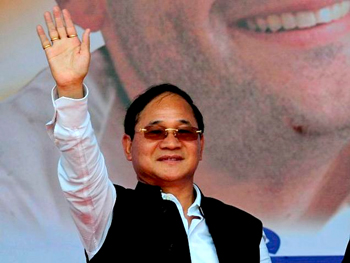
The Court said the Governor’s direction on conducting Assembly proceedings was violative of the Constitution.
The court said all steps and decision taken by the Legislative Assembly pursuant to Governor’s December 9, 2015 order are unsustainable and liable to be set aside.
All the five judges of the constitution bench headed by Justice J.S. Khehar were unanimous in setting aside the orders of Governor Jyoti Prasad Rajkhowa.
A bech had reserved its judgement on February 22, 2016.
The apex court had said the verdict in this case will not only have its effect on Arunachal Pradesh, but affect every State.
On February 20, rebel Congress leader Kalikho Pul was sworn in as the ninth Chief Minister of Arunachal Pradesh with the support of 18 dissident Congress MLAs and two independents and 11 BJP MLAs who gave outside support.
On the day the verdict was reserved, the bench had refused to pass an interim order on a fervent plea of Congress against the “illegal” swearing-in of the Pul-led government and had said that it can “set the clock back” if the Governor’s actions are found unconstitutional.
The Congress, which had 47 MLAs seats in the 60-member Assembly, suffered a jolt when 21 of its lawmakers rebelled.
Eleven BJP MLAs backed the rebels in the bid to upstage the government. Later, 14 rebel Congress MLAs were disqualified.
Hours after the Union Cabinet had decided to recommend revocation of President’s Rule in Arunachal Pradesh, the apex court had on February 17, 2016 ordered maintenance of status quo in the State till it examined judicial and Assembly records on disqualification of the 14 rebel Congress MLAs by former Speaker Nabam Rebia.
On February 16, the court had also refused to pass an interim order on a plea of Congress leaders that the Arunchal Pradesh Governor be restrained from swearing in a new government.





Comments
Loving the info on this website, you have done great job on the posts.
Feel free to visit my webpage :: block websites: http://www.tube8.to/video/5887/last-night-not-with-her-brother
If your intention (Niyyah) is not good then don't expect any positive verdict whatsoever.
1. Tried to tarnish Dr. Zakir Naik image - result NIAs clean chit
2. Arunachal Pradesh President rule-result SC reinstated Congress Govt.
Add new comment